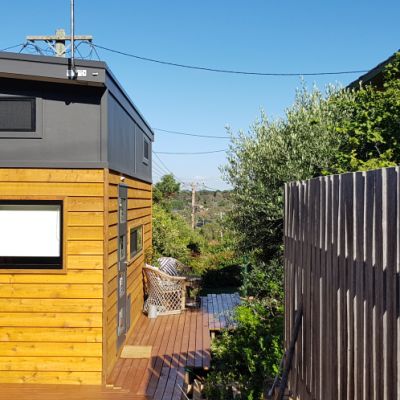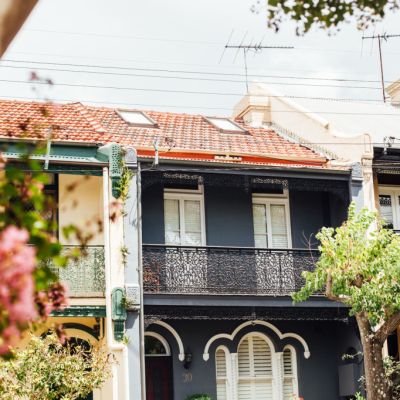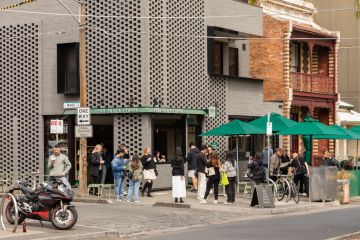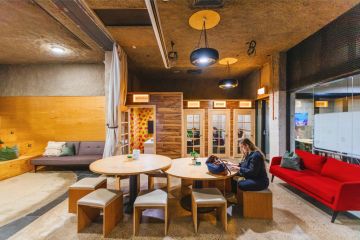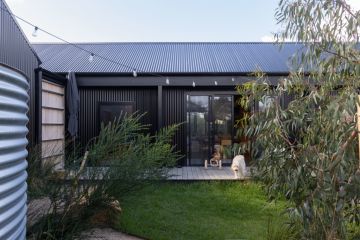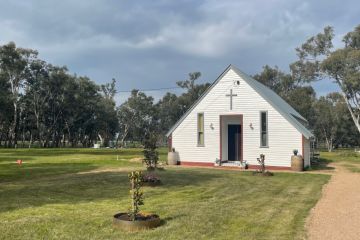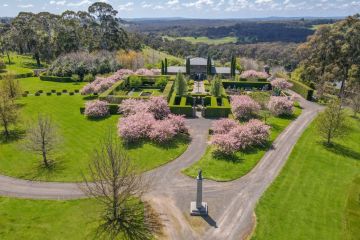Relocating tiny house to city was more labour of love than money maker
Joy Drury and Hagen Kerr had a grand plan to maximise part of a large section they owned in Vogeltown, Wellington.
They would swap a bit of their abundant native bush for some council reserve to enhance their building platform, then subdivide. Then they would relocate a 37 square-metre tiny house that came from a farm in South Wairarapa, do it up and sell it at a profit.
Needless to say, things didn’t go quite as planned – while they were able to gift 506 square metres of native bush to the council in exchange for the 75 square metres of land now used for the front garden and car pad, their two-year project turned out to be a five-year mission. But they have now finished and put their cute tiny house and shed on the market.
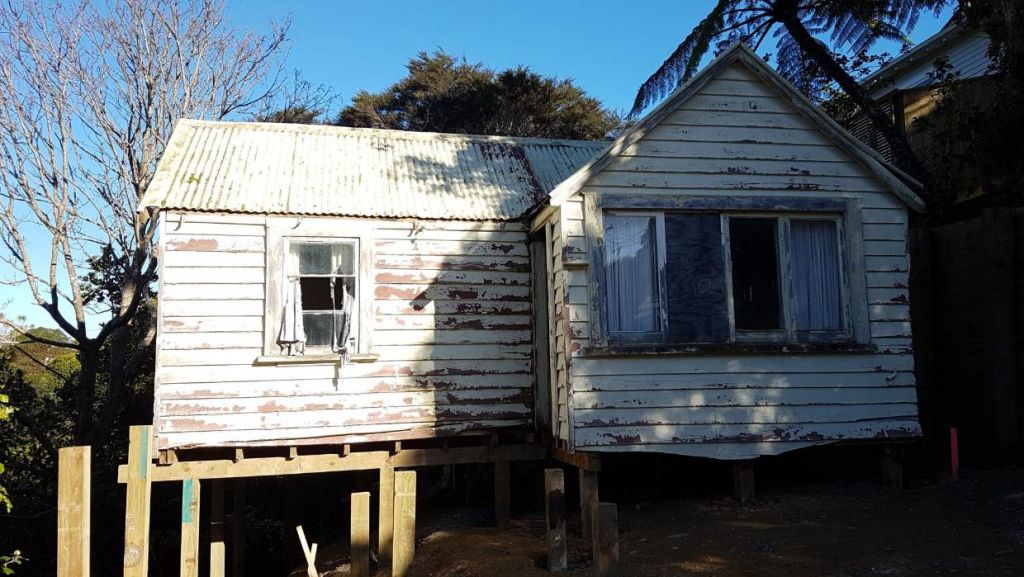
“We fell in love with the wee, 37 square-metre, two-room farm cottage, and we thought it would be fun project,” says Drury. “The cottage had been moved to a house removals company yard and was just $18,000. We thought it was such a steal and we were trying to keep costs down.”
But that was just the start. “By the time we added up the full cost of relocation and renovating, we could have built a new house for the same amount. It was a labour of love.
“That was one of the ‘learning things’ we discovered. We also realised you have to be doing such a project for other reasons as well (not just to make money), and we had several reasons.”
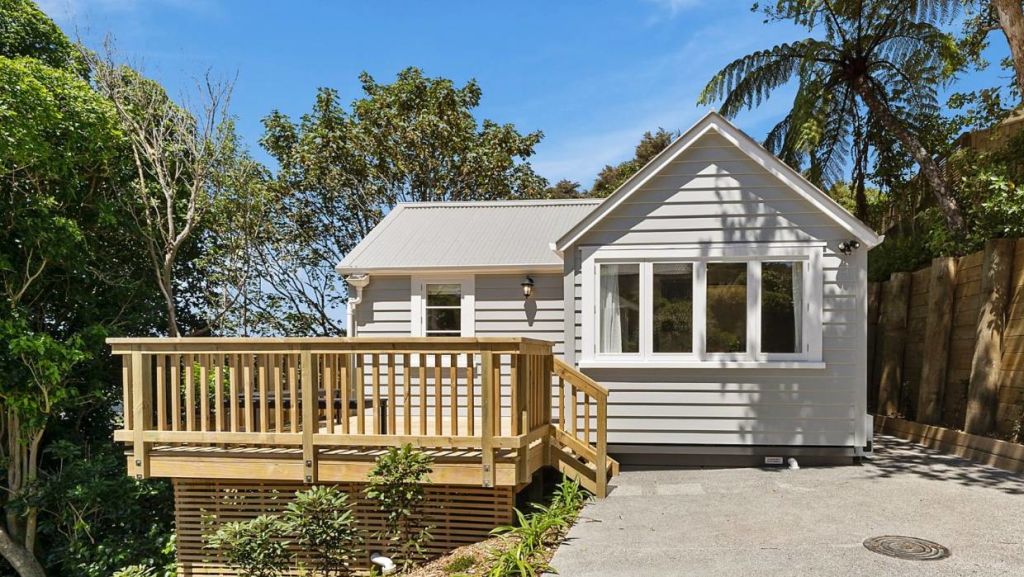
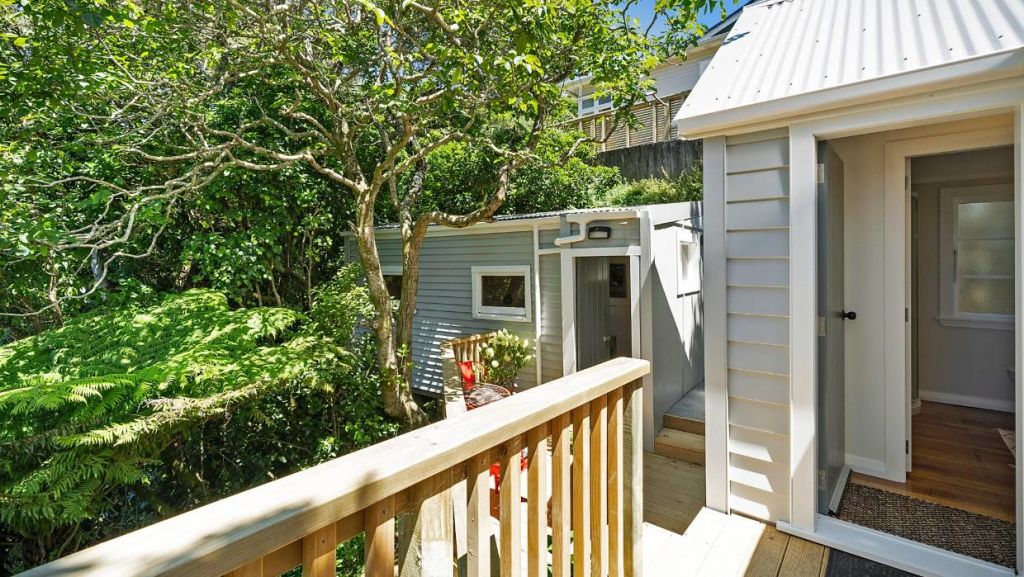
1. “We wanted to save this little character dwelling that needed a lot of work.”
2. “Because it is so small, we wouldn’t have to cut down too many trees.”
3. “I have always been fascinated by the tiny house movement. It has a lot to offer, especially for first-home buyers. It treads lightly on the planet, and forces you to figure out just what you really need and what you don’t.”
Drury says the couple have done a few projects, and they have all been about “creating a space we could live in ourselves if we were at that stage of our lives”. “With three children we can’t live in a tiny house like this now, but we would have loved it before we had the children.
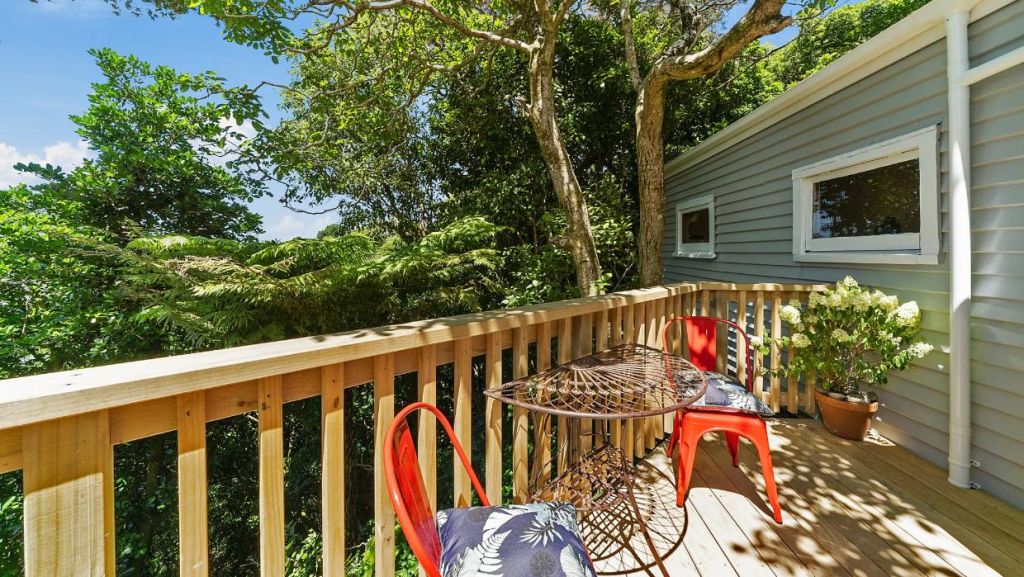
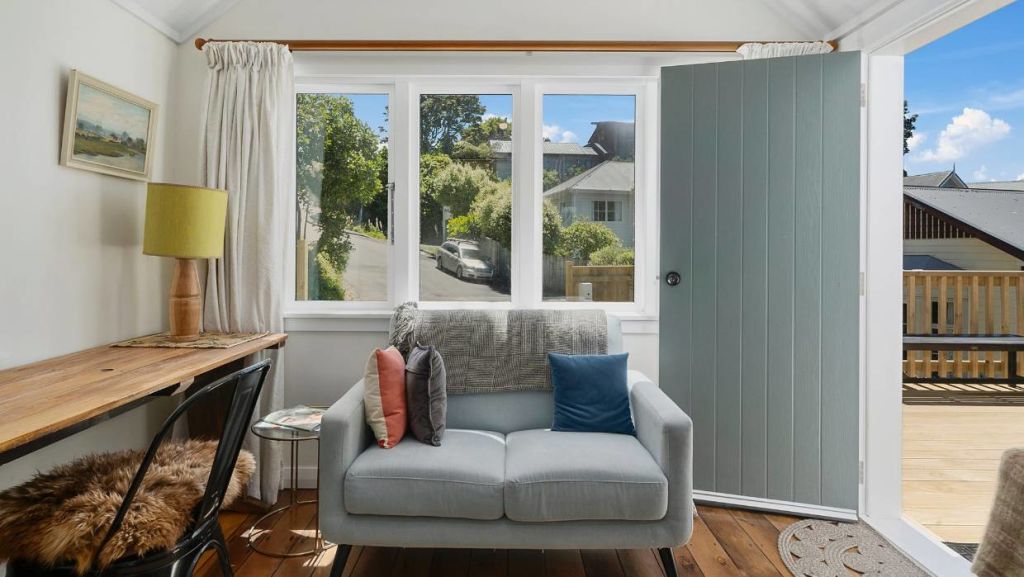
“We always look to keep the integrity of the original building intact. Here we have planted native plants all around it, so it just settles into the bush.”
The house, which is positioned for the sun, has been re-roofed and fully insulated in the floor and walls, and there is double glazing throughout. Drury and Kerr also added three decks, ensuring there was just as much space outside as inside.
“The whole house is less than the size of a double garage, but the outdoor rooms make it so liveable,” says Drury. “You really can live up big in a small house.”
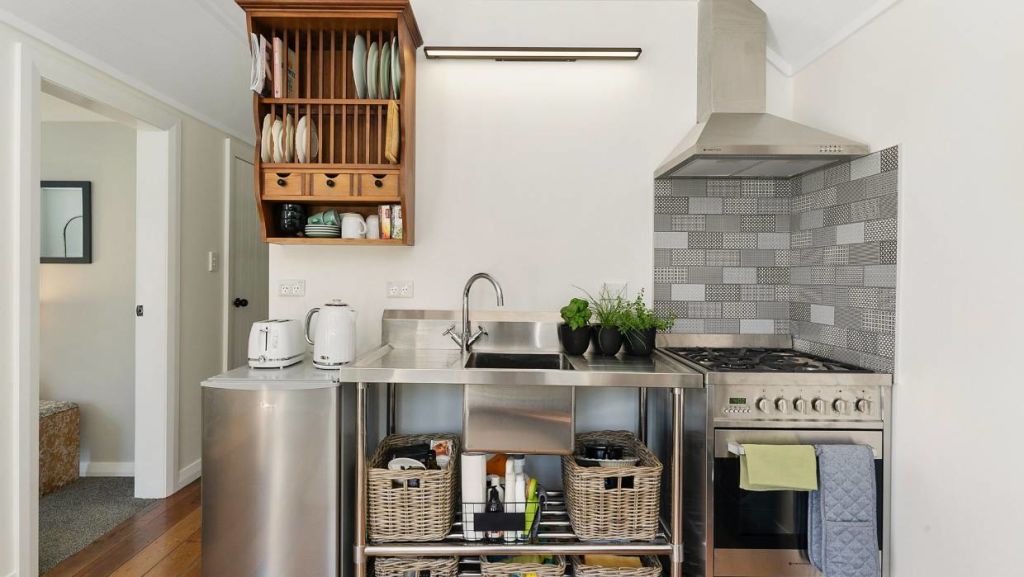
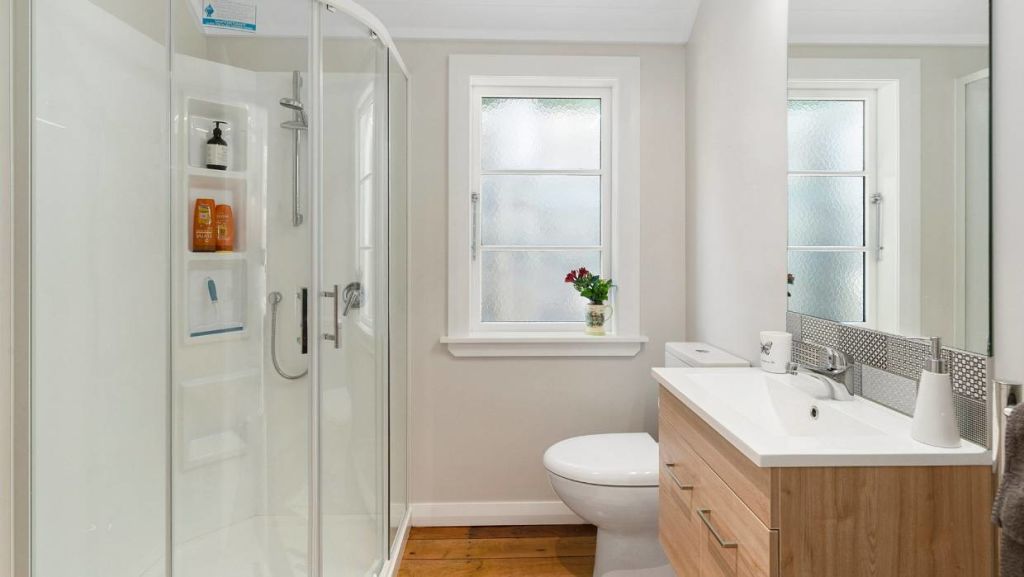
The couple put in an unfitted kitchen, with a commercial stainless steel bench and sink that will “last forever”.
“We also added a full oven because we love cooking. No matter what the size of the house, everyone wants to serve up a beautiful meal.”
An old shed on the property beside the cottage, which would make an ideal studio, has also been renovated – the outside has been painted to match the cottage. And the original woodworking bench remains. As does the old walnut tree beside the workshop, which is known to the locals. The family says it is believed to produce the world’s biggest walnuts.
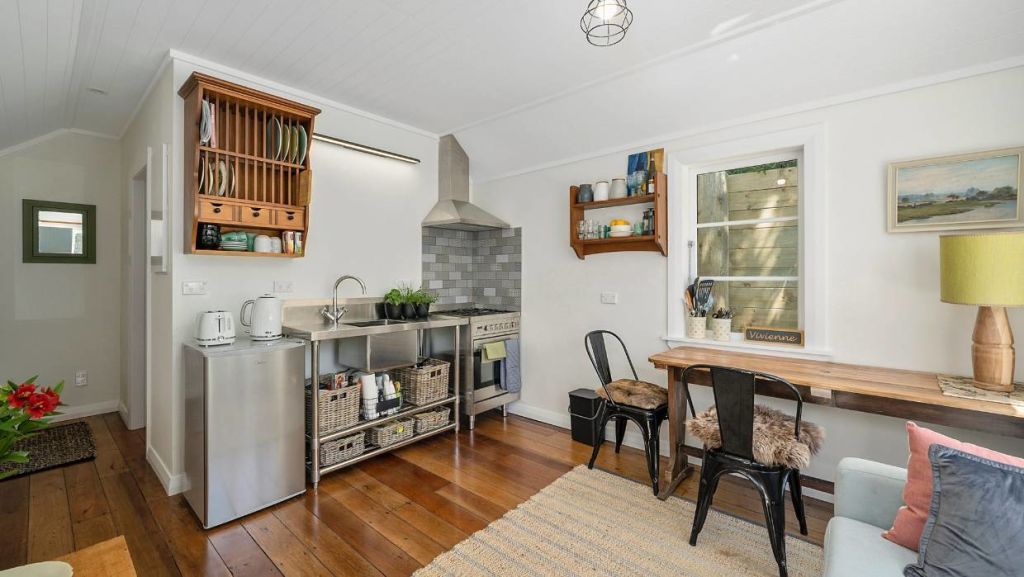
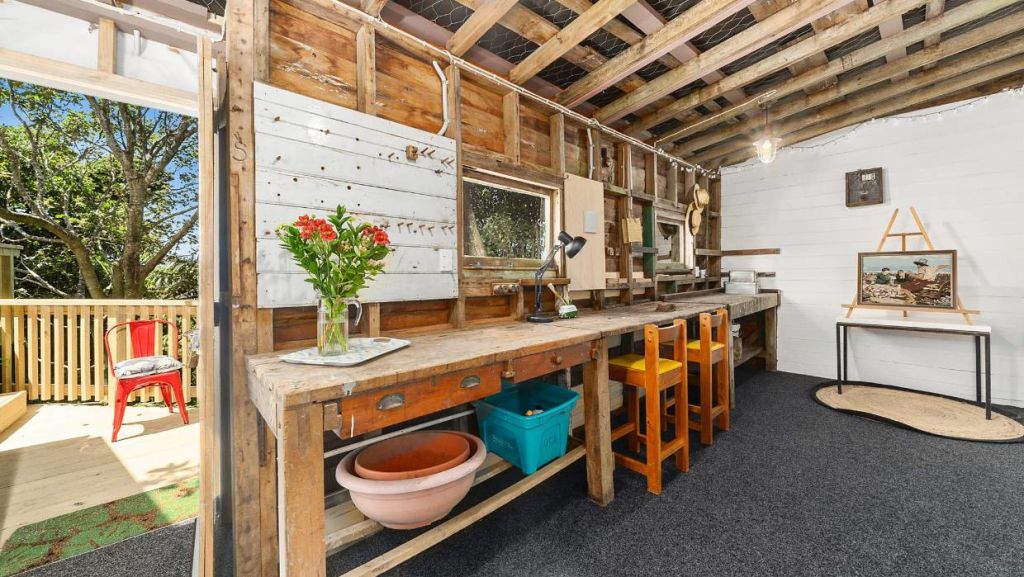
But Drury says you can’t anticipate every problem. “We discovered a stormwater lateral pipe right underneath the area where we wanted to put the cottage, and we had to wait a year or more for the council to move that.
“It took twice as long as expected to relocate and renovate, but we have a huge sense of achievement. And we don’t mind selling, because that was always our intention.”
The property is being marketed by closed tender by Anji Foster of Lowe & Co Realty, who says they are stating a buyer enquiry over $474,000 in the marketing.
– This originally appeared on Stuff
We recommend
We thought you might like
States
Capital Cities
Capital Cities - Rentals
Popular Areas
Allhomes
More

